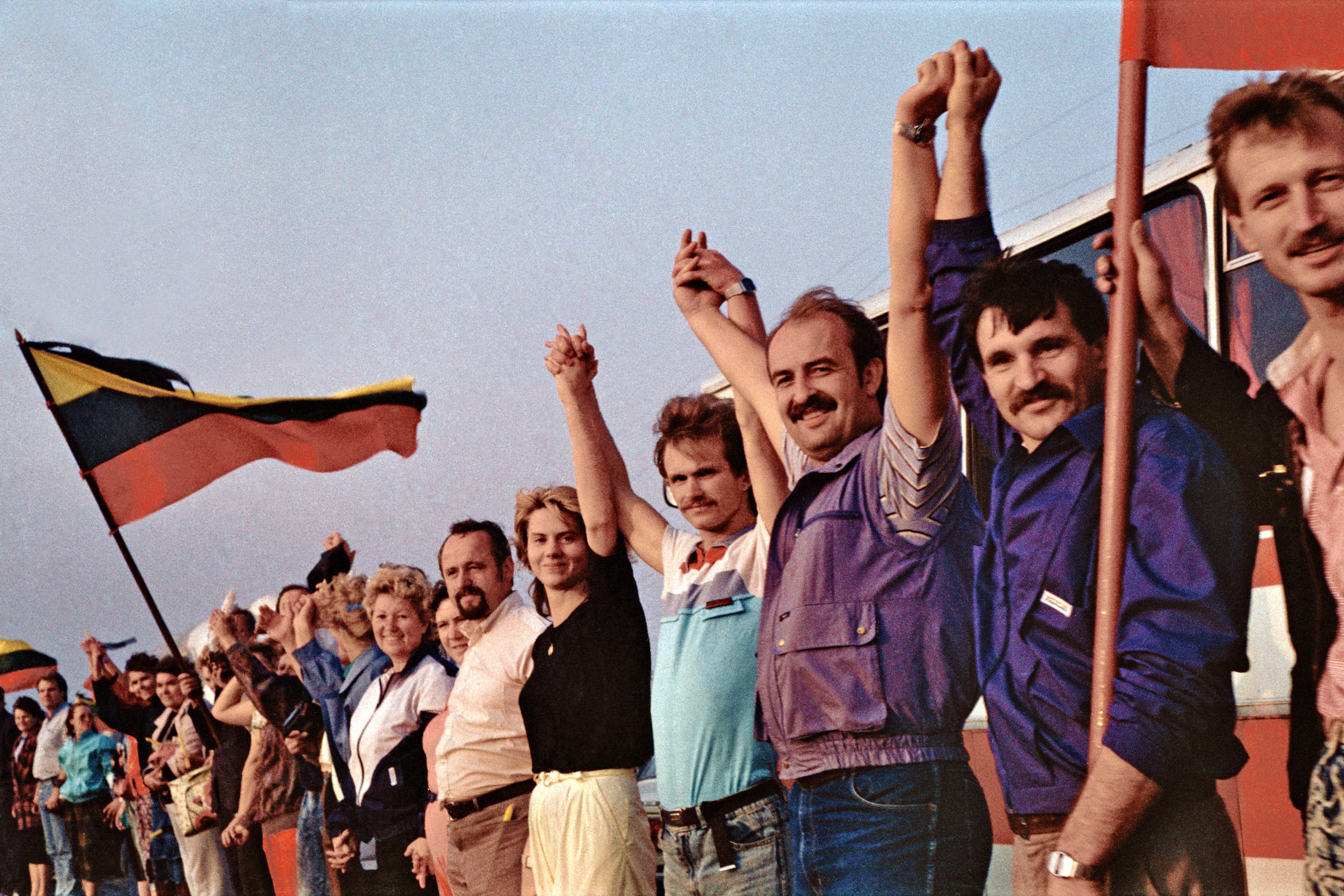British diplomats in the Baltic states have inadvertently shown up their Spanish counterparts' willingness to reinterpret historical facts in the commemorations that both countries have made on social media of the 'Baltic Way', the 600-kilometre human chain that took place 30 years ago, on 23rd August 1989. A tweet sent from the Spanish embassy in Latvia on the historic mass event avoided any reference to the demand for independence from the Soviet Union by the peoples of Lithuania, Lativa and Estonia. Instead, the Spanish view was that the human chain had been formed to "reaffirm the unity of the Baltic people and the will of their citizens to unite in Europe."
Felicitamos a Letonia por el 30° aniversario de la #CadenaBáltica, cadena humana de más de 600 kilómetros de longitud que se formó en 23 de agosto de 1989 reafirmando la unidad de los pueblos bálticos y la voluntad de sus ciudadanos de unirse a Europa. pic.twitter.com/VedJeWAlpr
— EmbajadaEspañaLetonia (@EmbajadaEspRiga) 23 d’agost de 2019
By contrast, the British embassy in Lithuania clearly emphasized in its tweet that "two million people who joined hands across the Baltic States" protested "against Soviet occupation" and demanded "freedom."
30 years ago, 2 million people joined hands across the Baltic States to protest against Soviet occupation and demand freedom. Today the UK Ambassadors to EE, LV and LT commemorate it together with the peoples of 🇪🇪🇱🇻🇱🇹. #BalticWay30 #BlackRibbonDay @HMAVilnius pic.twitter.com/0dJoFWZNqD
— UK in Lithuania 🇬🇧 (@ukinlithuania) 23 d’agost de 2019
In addition, the British delegation attached a video emphasizing that the 600km of human chain were an entirely peaceful political demonstration that brought together a huge variety of people and showed that democratic ideas unite. The British ambassador to Lithuania, Claire Lawrence, described the imaginative 1989 protest as a "defining moment", because it showed that "this was not just about top level politics" but that "so many ordinary people wanted freedom."
The video recounts how the United Kingdom had never formally accepted the occupation of the three Baltic states by the USSR and that quickly recognized Lithuania, Latvia and Estonia as independent countries.
#23August: One day + three nations & 2 million people + 600 kilometers = Independence for the Baltic states! 🇱🇹🇱🇻🇪🇪
— UK in Lithuania 🇬🇧 (@ukinlithuania) 16 d’agost de 2019
The Baltic Way proved that faith in democratic ideas unites!#BalticWay30 pic.twitter.com/bFLxKNFLLS
Among the protests that the Baltic Way inspired were this Friday's Hong Kong Way (link in Catalan), the latest protest by the Asian city's pro-democracy movement, and the 2013 Catalan Way when around 1.6 million Catalan independence supporters (this link shows just a few of them) joined hands to form a human chain which stretched 400 kilometres across Catalonia, from Le Perthus on the frontier with France in the north, to Alcanar at Catalonia's southern border with the Valencia Country. The motive was to call for a referendum on independence from Spain.

